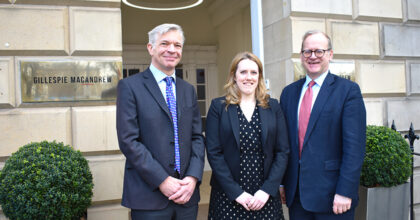Last week saw the announcement that Aldi and Marks & Spencer had reached an agreement on the copyright infringement that was Colin/Cuthbert. The news reminds us that intellectual property (“IP”) is a valuable asset that can often result in disputes over misuse or infringements. But it is not just big brands that should be looking after their IP. Charities and third sector organisations should be mindful of what could be an important (and often under-valued) asset.
What is Intellectual Property?
The short answer is it is something you create with your mind, like a story, a brand or symbol or an invention. IP falls into a variety of different categories, but most organisations will commonly deal with copyright and trade marks.
1) Copyright
This type of IP covers written words, sounds/musical recordings, photography and broadcasts. The protection (under the Copyright, Designs and Patents Act 1988) applies automatically on creation without paying a fee. The length of protection depends on the type of copyright involved, ranging from 25 years from first publishing to 70 years after death of the creator. Copyright protection allows an organisation to stop someone else copying its work, performing/showing its work in public or making adaptations of its work without permission.
2) Trade marks
This type of IP covers words, sounds, logos, shapes and colours which are formed to make a unique mark which identifies goods or services. A trade mark can be one or more of these and generally helps people recognise an organisation in the marketplace. Similar to copyright , there are unregistered trade marks which apply on creation. However, in addition to the unregistered marks (often marked with ™), it is possible to register a trade mark with an intellectual property office (and thereafter mark with ®). Registering a trade mark tends to make it easier to protect the IP and gives protection for 10 year terms (subject to renewal).
Within a single product, there could be multiple IP protections that apply, for example a trade mark in a logo of a business could also have copyright protecting the drawings of that logo.
Owning IP
It is also worthwhile noting that IP is like any other asset which can belong to individuals or to organisations and is capable of being sold or transferred. There is also a potential for joint ownership of IP, particularly if there has not been discussion at the outset as to who owns what.
Early Steps to Protect IP
As a first step, charities should think about putting non-disclosure agreements in place to protect any ideas or potential IP particularly when discussions are at an early stage. These are standard practice in the private sector and let organisations share ideas without fear of the ideas being stolen or misused.
Another early step which organisations should take is recording ideas in some permanent form. Having an idea in a mind does not benefit from IP protection, but once written down or otherwise recorded, it becomes IP and capable of protection.
Practical considerations
1) Do your research & keep a list
Charities do not want to spend a lot of time, money and effort creating a new brand or campaign, only to discover that it is already used elsewhere. Searches at Companies House, the IPO registry and a general internet search are a good idea before starting down a route. Always remember to do similar sounding or spelling as well (so “whole” and “hole”, or “straight” and “str8”).
Once the research is done, charities should keep a list of all IP and regularly review it. This will make it easier to ensure any renewal or term dates are watched so that any related rights or licence terms are less likely to inadvertently lapse. Additionally, it can help organisation to realise the intangible value associated with the IP.
2) Reputation is key
Although registering a trade mark can seem expensive, it is a worthwhile consideration for charitable organisation. Like any public facing entity, charities will have a brand and reputation to protect and taking action to maintain that brand and reputation, as well as potentially making money from any association, would be highly recommended. An outlay at the start to get a registered mark may be a more cost-effective way of ensuring legal protection for a brand in future, rather than costs involved in action against use of an unregistered mark.
3) Check contracts
This is an important step particularly where an organisation has instructed someone to carry out work. Checking contracts prior to signing is a good idea so an organisation ensures it retains any IP created. If ownership is not possible, it is worthwhile considering whether a licence is appropriate to enable use of the IP going forward. Do not forget to consider how the impact of loss of ownership or control of the IP concerned might have on other assets or services offered.
If a charity engages volunteers, it should also ensure there are agreements or contracts in place to deal with any IP which might be created by those volunteers. Unlike the default position that anything created by an employee as part of their job is owned by the employer, any IP developed by a volunteer without a contract may end up owned by the volunteer.
4) Protect your IP
Take time at the outset to identify the different IP protections that apply and how long they apply for. Once an organisation has identified the type of IP, charities should keep a regular check on use of the IP and take action if someone is using it without permission. Action could be asking them to stop using the IP, reaching an agreement on the use or legal action to resolve the dispute.
The other step to take is to monitor the market for any similar sounding names or brands and objecting to its use or registration if appropriate. If an organisation does nothing initially and people misuse IP, it then becomes harder to show the next person should not be allowed to.
If you have any questions about the matters raised in this article, or would like to discuss what intellectual property your might have and the protections that are available, please contact our Charities team and we would be delighted to talk you further.





